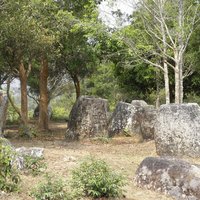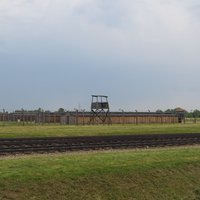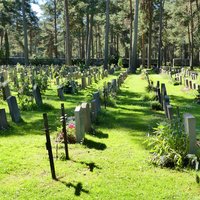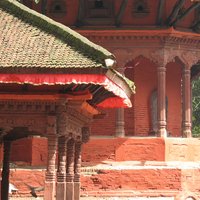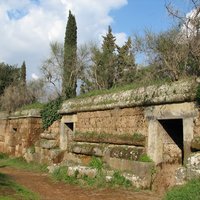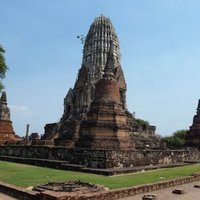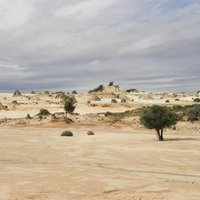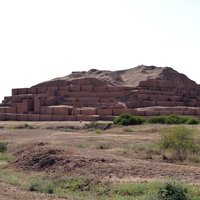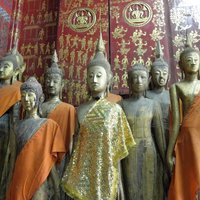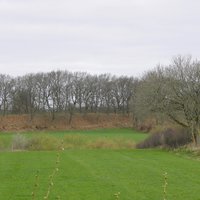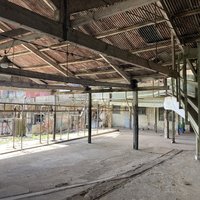Connected Sites
-
"Site 1 (...) has (...) a cave that possibly functioned as a crematorium, (...)." (AB Ev) – "Colani interpreted the cave as a crematorium and columbarium, with the holes acting as chimneys. However, more recent consideration of the crematorium hypothesis has questioned this use, and suggested Neolithic occupation and use including the use of fires but not for cremation (...)." (Nomination file, p. 41) – "In some of the jars, Colani found (...) ash from cremations, possibly belonging to several individuals of varying ages (...) The ashes enabled Colani to formulate an early conclusion: "These discoveries leave us in no doubt whatsoever about the funerary function of the jars" (...) Colani undertook a second mission and excavation in 1931, to Sites 2 and 3. In addition to noting the presence of jars with a recessed inner rim, not found at Site 1, Colani also found ash from cremations and burnt human bones." (Nomination file, p. 84)
-
Crematoria for murdered Concentration Camp victims
-
Crematorium
-
Pashputinath Ghats. Active Hindu cremation site
-
Cerveteri: "The earliest known [tombs] are series of rock cut trenches holding pottery ossuaries containing ashes of the deceased." (AB Ev) – Cerveteri: "The most ancient burials can be recognized close to Tumulus III, as a series of small trenches excavated in the tufa rock. They contained impasto pottery ossuaries which held the ashes of the deceased." (Nomination file, p. 9) – "The most ancient areas (9th to 8th century B.C.) [of the Cerveteri necropolis] (...) include (...) well-shaped tombs for the burial of cremated remains in urns". (Nomination file, p. 20)
-
Ayutthaya's Rajburana Temple was the cremation ground site for King Boromraja's brothers
-
Site of earliest discovered remains of a human cremation - "Mungo Lady" at Mungo Lake c26-20 000 years ago
-
"A building on the grounds contains five vaulted underground tombs, within four of which are cremated remains, and there is one uncremated corpse. The Elamites traditionally buried their dead, and the reason for the cremation is unknown."
See www.britannica.com
-
Luang Prabang's royal cremation chariot is kept in Wat Xiang Thonh
-
About 6% of the people in the grave fields were cremated (nom file)
-
cremation of animal remains at the factory

